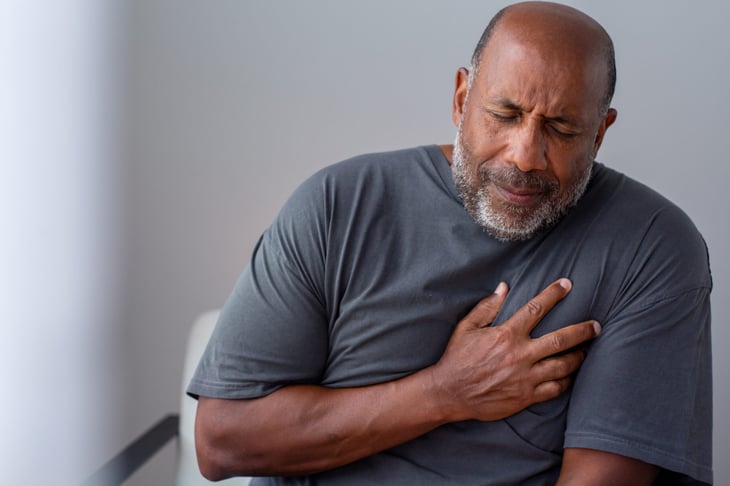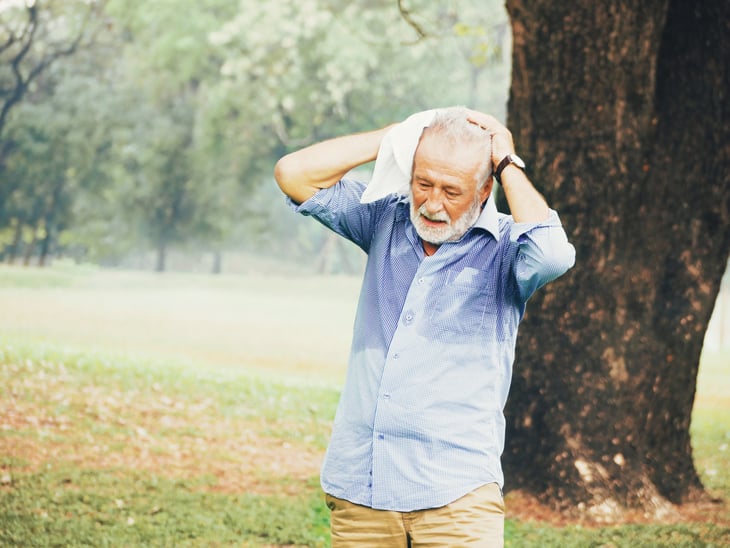
Many people — especially those 40 and older — worry about the risk of having something go wrong with their heart. But do you know the key signs that indicate that sudden cardiac arrest might be imminent?
Recently, researchers at the Smidt Heart Institute at Cedars-Sinai conducted a study and discovered that half of people who experienced a sudden cardiac arrest also felt a key symptom during the 24 hours before the event.
The warning signal itself was different for men and women. In the following breakdown, we reveal the key symptoms that could indicate that sudden cardiac arrest is on the way.
What is sudden cardiac arrest?

Before we move forward, it is important to point out that sudden cardiac arrest and a heart attack are not the same thing. According to the American Heart Association:
“A heart attack is when blood flow to the heart is blocked. Sudden cardiac arrest is when the heart malfunctions and suddenly stops beating. A heart attack is a ‘circulation’ problem and sudden cardiac arrest is an ‘electrical’ problem.”
The Cedars-Sinai researchers specifically looked at sudden cardiac arrest.
As part of the observational study, researchers analyzed data from emergency medical services reports. Specifically, they looked at data on 411 California patients (aged 18-85) who had suffered a sudden cardiac arrest that was witnessed by someone else, like a bystander or EMS personnel.
The researchers also compared the heart attack patient data with data on 1,171 Oregon patients who experienced at least one heart attack symptom but did not actually have a heart attack.
1. Dyspnoea

In women, dyspnoea — also known as dyspnea, but more commonly referred to as shortness of breath — was the only symptom that researchers found to be “significantly associated” with impending sudden cardiac arrest.
If you experience shortness of breath, it might feel like you cannot get enough air into your lungs, and your chest might feel tight, according to the Cleveland Clinic. Some people feel like they are gasping for air, while others feel like they are working harder than normal to breathe.
2. Chest pain

In men, chest pain was the top sign of an impending sudden cardiac arrest.
Chest pain can take many forms, according to the Mayo Clinic. In some cases, it feels like a sharp stab. In others, it is more like a dull ache. The pain also can feel crushing or burning and might travel into the neck and jaw before spreading down into one or both arms.
3. Diaphoresis

While chest pain is the most common symptom that men experience before sudden cardiac arrest, it’s one of three that the researchers found was “significantly” associated with sudden cardiac arrest in men. The second is shortness of breath, and the third is diaphoresis, which is abnormal or excessive sweating.
Other symptoms preceding sudden cardiac arrest

While the researchers do not consider them “significantly” associated with sudden cardiac arrest, the following symptoms each were experienced by about 10% of all 411 patients studied (men and women) prior to their sudden cardiac arrest:
- Seizure-like activity
- Weakness
- Nausea or vomiting
In addition, dizziness and syncope (fainting) each were experienced by 6% of patients prior to sudden cardiac arrest.
What to do if you suspect sudden cardiac arrest is imminent

Sudden cardiac arrest is a serious condition. The study’s researchers note that 90% of people who experience the condition outside a hospital setting do not survive.
In a summary of the study’s findings, senior study author Dr. Sumeet Chugh — director of the Center for Cardiac Arrest Prevention in the Smidt Heart Institute — says:
“Harnessing warning symptoms to perform effective triage for those who need to make a 911 call could lead to early intervention and prevention of imminent death. Our findings could lead to a new paradigm for prevention of sudden cardiac death.”
If you or someone you know experiences symptoms of sudden cardiac arrest — including breathing that is not normal and sudden loss of responsiveness — the person experiencing symptoms needs medical care right away.
If someone else is experiencing these symptoms, the American Heart Association urges you to check the person for a response. Shout for help, and tell someone to call 911. If an automated external defibrillator (AED) is nearby, ask for it.
If the person is not breathing or only gasping, begin CPR with compressions. According to the AHA:
“Push down at least two inches in the center of the chest at a rate of 100 to 120 pushes a minute. Allow the chest to come back up to its normal position after each push.”
Then, use the AED and follow its prompts. Continue CPR until the person starts breathing or moving, or until a medical professional arrives.





Add a Comment
Our Policy: We welcome relevant and respectful comments in order to foster healthy and informative discussions. All other comments may be removed. Comments with links are automatically held for moderation.